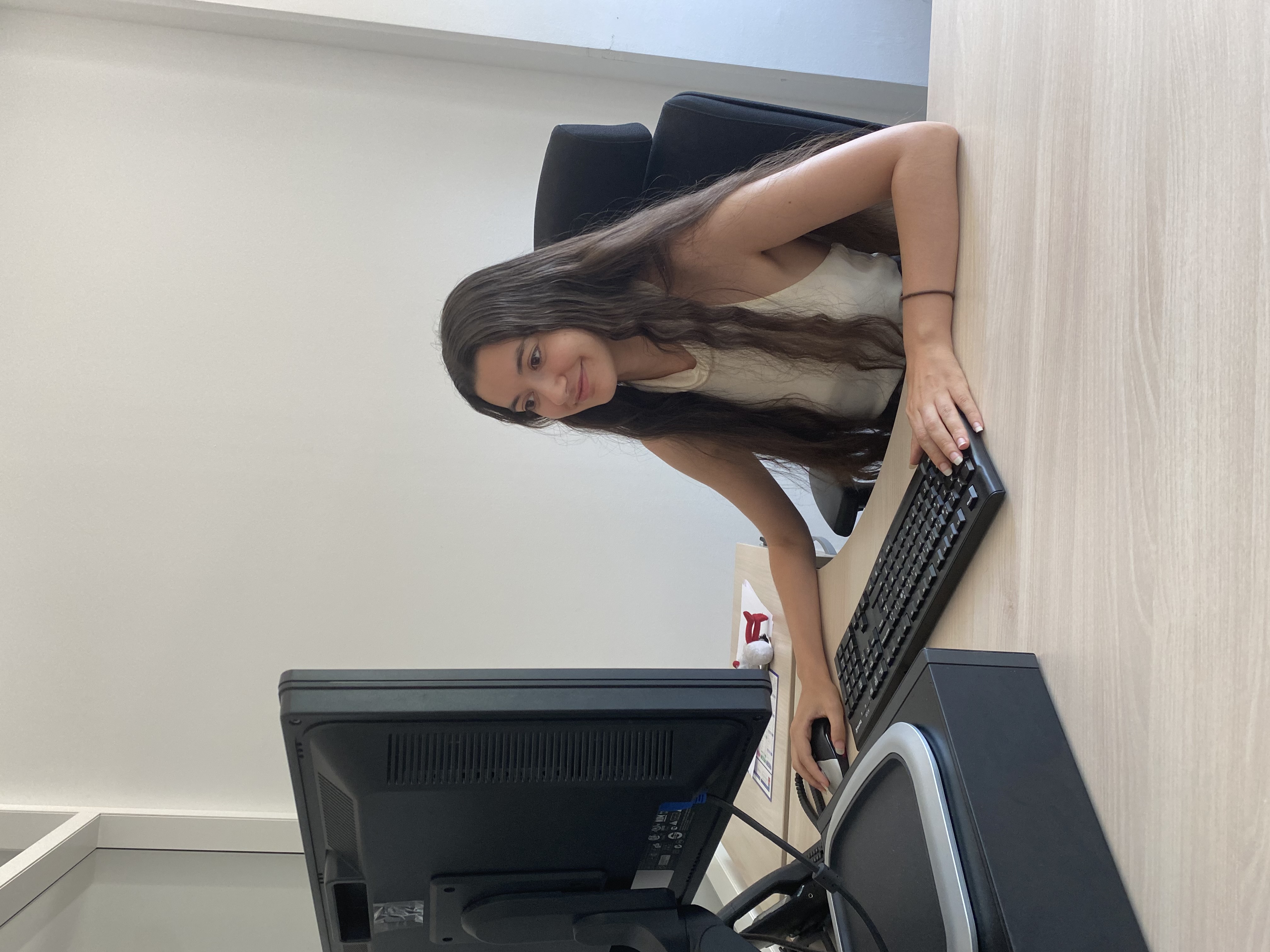Marta, could you please introduce yourself?
I’m Marta, 23 years old and Spanish. In high school, I went to an international school in Bosnia and Herzegovina, followed by a voluntary year in India where I taught literacy to school children. Since 2020, I’ve been living and studying in Strasbourg, first doing a double degree in Franco-Spanish law, followed by a master’s in international public law at the University of Strasbourg.
I’m currently writing my master’s thesis on the topic of international protection applicants and beneficiaries confronted with the theory of vulnerability. Since September 2022, I’ve been doing a “service civique” at the Euraxess Service Centre in Strasbourg.
What exactly is a “service civique” and what does yours consist in?
A “service civique” is a voluntary mission done for the public good. Here at Euraxess, I take care of accompanying international researchers in their cultural integration. I help the Euraxess team with the communication and organisation of events. A big part of my work consists in the logistical organisation of activities, spreading the word on social media and of course attending the events.
What was your favourite event you organised and participated in?
I would say it was the trip to Colmar in April 2023. Although it required a lot of preparation, it was worth it and turned out being a lot of fun. The excursion lasted the whole day, we learned about the history of the city, had a delicious lunch, went to interesting museums and had great conversations.
What is your favourite part of the job?
I enjoy the interactions with the researchers, the creativity involved in creating social media posts, the freedom of suggesting the excursions, etc. This “service civique” allowed me to re-discover Strasbourg with a fresh eye. This was also my first time working in a team, and I learned how important social media are in a professional setting.
What tip would you give to newly-arrived researchers?
I would suggest them to find a network of researchers who are in a similar situation to theirs in order to discover the city, the French language and culture together. Together it’s easier and more fun!
Last question: how will you be spending your summer after your “service civique”?
I will first go back to my home country, Spain, and will finish writing my master’s thesis. Thereafter, I will be moving to Natolin (Poland), where I will attend the postgraduate study programme of European Studies at the Collège de l’Europe.


